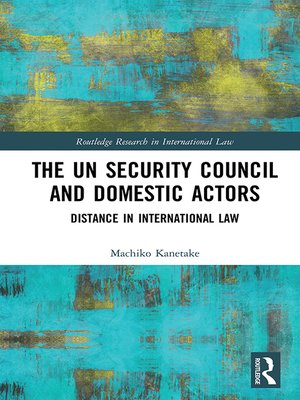The UN Security Council and Domestic Actors
ebook ∣ Distance in international law · Routledge Research in International Law
By Machiko Kanetake

Sign up to save your library
With an OverDrive account, you can save your favorite libraries for at-a-glance information about availability. Find out more about OverDrive accounts.
Find this title in Libby, the library reading app by OverDrive.



Search for a digital library with this title
Title found at these libraries:
| Library Name | Distance |
|---|---|
| Loading... |
This book analyses the exercise of authority by the UN Security Council and its subsidiary organs over individuals. The UN Security Council was created in 1945 as an outcome of World War II under the predominant assumption that it exercises its authority against states. Under this assumption, the UN Security Council and those individuals were 'distanced' by the presence of member states that intermediate between the Security Council's international commands and those individuals that are subject to member states' domestic law. However, in practice, the UN Security Council's exercise of authority has incrementally removed the presence of state intermediaries and reduced the Security Council's distance to individuals.
This book demonstrates that this phenomenon has increased the relevance of domestic law in developing the international normative frameworks governing the UN Security Council and its subsidiary organs in safeguarding the rights, obligations, and interests of those affected individuals. This book presents how the UN Security Council's exercise of authority has been received at the domestic level, and what would be the international implications of the Security Council's extensive encounter with the actors who primarily reside in a domestic legal order.







